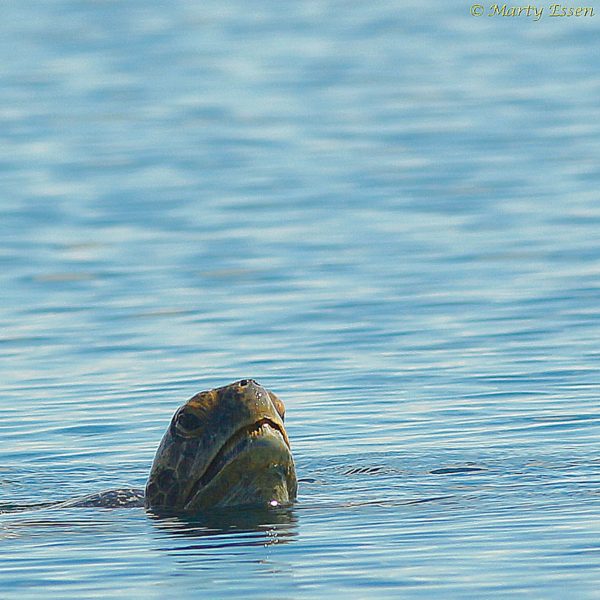
Marty’s photo of the day #2562: I will let a short excerpt from my second book, Endangered Edens: Exploring the Arctic National Wildlife Refuge, Costa Rica, the Everglades, and Puerto Rico, explain this shot:
Shortly after returning to the gulf, we spotted a domed object—roughly the circumference of a trash can lid—on the surface of the water. At first, none of us could figure out what it was. Then, as our driver slowed the engine and moved us closer, Jose said hesitantly, “I think it’s an olive ridley sea turtle. I’ve never seen one on the surface of the water like that. It might be sick or dead.”
Through my telephoto lens, I could see the turtle’s shell, but it appeared as if its head was either missing or pulled inside. An instant later, the shell began to sink and a large head popped out of the water. “It’s alive!” I said.
As sea turtles go, olive ridleys are common. However, their numbers have dropped by 50 percent since the 1950s, largely due to egg gathering and getting caught in fishing nets. Most countries, including Costa Rica, protect the turtles. But even the protection is controversial, as the Costa Rican government allows 120 families from the coastal town of Ostional to engage in limited “sustainable” egg gathering. The government’s rationalization is that by limiting egg gathering to the first thirty-six hours of a mass nesting period (called an arribada), the families are mostly taking eggs that later arriving turtles would have destroyed anyway, and those families will protect the remaining eggs to ensure profitable future harvests.
How do I feel about Costa Rica’s turtle egg exemption? The Costa Rican government puts forth a persuasive argument that the program is actually increasing the local turtle population. On the other hand, it is arguably enabling the overseas turtle egg black market (how do you prove where the eggs came from?), where unscrupulous profiteers sell the eggs as aphrodisiacs to the same class of primitive idiots who ingest powdered rhino horn, expecting a variety of cures. So while I’d normally give an ecologically forward-thinking government like Costa Rica’s a greater benefit of a doubt than I would give a drill-baby-drill government like Alaska’s, I just can’t go there with them on this one.
As for the olive ridley sea turtle in front of us: she held her head above water for a minute or so, while we inched closer and raved about our sighting. Then, in one smooth motion, she ducked her head below the surface and was gone.